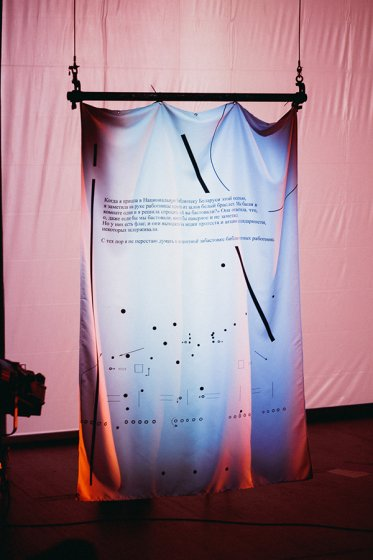Scoring political movement and its exhaustion
The score stresses the complex relation with time, history and body, it “demands this de- and rematerialization of time, in that it always anticipates itself through its enactment, exists within that present moment, and looks back at itself” Hendrik Folkerts). Departing from the documents (texts and movement notations) on of socialist mass celebrations, the research develops definition of a movement score as any graphic notation of movement (including text) that intersects multiple temporalities of its enactment. The paper addresses political movement and its exhaustion, unsettling the linear temporality of the revolutionary event. It refers to the 2020 anti-governmental uprising in Belarus and its suppression, followed by Russia’s invasion in Ukraine, supported by Belarusian government, and to the current anti-war resistance. The political movement could be approached through the notion of presentist, where revolutionary practices break the linearity of time in a stretched out and intensive present, opening a space of possibility that is not postponed into the future (Isabell Lorey). While David Scott views political action through “the temporality of the aftermaths of political catastrophe, the temporal disjunctures involved in living on in the wake of past political time, amid the ruins”. It echoes the perspective on post-socialism as directed to the past (of a failed political project), while in socialism political action was intertwined with its collective imagination and thus with future. Neda Atanasoski and Kalindi Vora, however, rethink post-socialism through the notion of queer time, which “complements the past conditional temporality of what could have been”, being non-unified, propelled by multiple political desires and uncertainties. These complex temporalities of the above mentioned political events and movements are studies through the notion of score.
